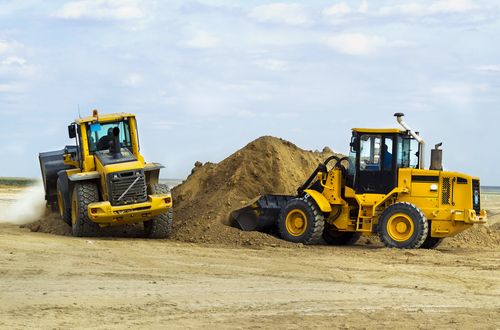Construction work requires the frequent use of heavy equipment that, although very useful and time-saving, can be extremely dangerous. The most-used heavy equipment include tracks, excavators, and pavers. And accidents related to these tend to be fatal or to cause severe injuries.
Workers should understand the hazards of this equipment to prevent accidents. Employers are also legally required to provide their employees with appropriate training and tools, so that they can do their job safely. The following heavy equipment safety tips will offer construction workers a quick refresher that hopefully will help prevent accidents. Read carefully:
- NEVER use equipment you are unfamiliar with. It is important to be properly trained and to practice before using it.
- INSPECT the equipment before you start using it — every single time.
- Do not RUSH or ignore safety rules. When using this type of equipment, overconfidence is your worst enemy.
- Stay ALERT, be CAUTIOUS and know your blind spots. If you are not using heavy equipment, but you are walking around it, you need to be extra-careful.
- Do not leave equipment unattended, and when using the equipment, always signal your moves. Never assume other workers know what your next steps will be.
- Wear your seat belt. Even if you are going at the slowest speed, it’s important to buckle up.
- Climb on and off properly. Never exit while the equipment is moving. Falls are the number one cause of injury in construction, so be careful.
- Do not overload the equipment. Respect the maximum load the equipment is rated to carry. Failing to do so is harmful for the machinery — and potentially for you.
- Wear appropriate safety gear. Your employer is legally required to provide you with the equipment necessary for each tool.
- Working with heavy equipment in extreme weather conditions like ice or snow can be extremely dangerous. If possible, avoid doing so.
As always, construction workers’ safety is our priority. If you, or a loved one is injured in a construction accident related to heavy equipment, someone might be held responsible, and you may be entitled to a compensation. We can analyze the incident and explain you your legal rights. Contact us immediately for a free consultation.
